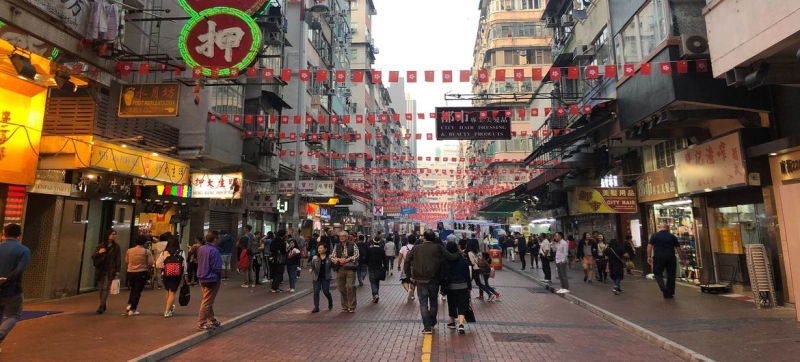
Night market in Hong Kong, China. UN human rights chief: Hasty adoption of new security law in Hong Kong is a ‘step backwards’ Human rights
The accelerated approval of the national security bill represents a “step backwards” for human rights in Hong Kong, UN High Commissioner Volker Türk said on Tuesday.
Turk deplored the move by lawmakers in the former British colony, which has been a special administrative region of China since 1997. The far-reaching bill was adopted on an expedited basis despite serious concerns that its provisions were contrary to international law, the UN High Commissioner for Human Rights said.
Additional crimes
According to international media reports, the bill, known in Hong Kong as Article 23, was debated by the legislature only 11 days.
Read also:
The UN is concerned about the new national security law, the adoption of which has already led to arrests in Hong Kong
The article will expand the National Security Protection Law, which was passed in China in 2020. Five additional categories of crimes will be added, namely treason, rebellion, crimes involving state secrets, espionage, sabotage and threats to national security, and external interference.
Abuse law
Türk emphasized that the overly broad and vague provisions of the bill could lead to the criminalization of actions protected by international law. We are talking about freedom of expression and peaceful assembly, as well as the right to receive and disseminate information.
“Such ambiguity is of grave concern given the potential for abuse of the law and its arbitrary application, including to target dissidents, journalists, researchers, civil society representatives and human rights defenders,” – he said.
According to Turk, such provisions lead to self-censorship and restriction of lawful speech and action regarding issues of public interest on which open debate is critical.
He added that due to the broad definition of what constitutes “external interference,” the law could impact interactions with human rights organizations and UN human rights bodies.
“The passage of such an important bill, which has a significant impact on the human rights situation, without a thorough deliberation process and meaningful consultation is a step backward for the protection of human rights in Hong Kong,” said the Supreme Commissioner.
